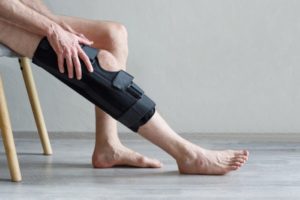
The theory behind a personal injury claim is pretty simple.
You were walking down the road or minding your own business – and, all of a sudden, you got injured due to someone else’s negligence.
The damage can be caused in a fight or a car accident. Nevertheless, as long as you weren’t a contributing factor to the whole thing, you can opt for a personal injury claim.
Here’s what you need to do to get through the whole procedure.
Personal Injury vs. Bodily Injury – What’s The Catch?
Usually, when it comes to personal injury, most people tend to mix it up with another similar term, “bodily injury.” However, they’re pretty different as a whole.
For example, a bodily injury can include –
- Bruises and scrapes.
- Cuts and lacerations.
- Internal bleeding and broken bones.
If you’re living in New Jersey, you can consider getting burn damage to be a bodily injury. It is a little limited, though, unlike a personal injury.
A personal injury, in essence, is a core civil law element where you can fill a legal claim as an accident victim. In this aspect, you can claim compensation for –
- Lost wages,
- Property damage,
- Rehabilitation expense,
- Physical injuries or medical bills,
- Emotional and mental distress,
- Suffering and pain sustained from the accident.
Usually, the most common personal injury claim is a car and truck accident. Nonetheless, if you’ve been struck by someone as a pedestrian, you can still consider it as a personal injury.
Oh, and medical malpractice can be included in the same regimen as well.
How Do You Charge A Personal Injury Claim?
Like any other claim, a personal injury charge tends to go through a step-by-step procedure too. Please keep reading to know more about it.
Step – 1: Open Up Your Claim.
The process of opening up a claim will require both your insurer and the insurance carrier of the person who has injured you. You can talk to both of them (or ask your lawyer) and open a claim officially by stating the extent of the damage.
Step – 2: Go Through A Proper Medical Treatment.
Once you’ve submitted your claim, you’ll need to go through another medical treatment. It’ll help you prove that you were, indeed, injured and charge the assailant legally. Also, keep the prescription from the previous check-up. You might need it if the case goes to court.
Step – 3: Submit Your Demand Package.
Once you’re done with your medical treatment, ask your attorney to prepare an all-inclusive demand package. It should include –
- Your treatment record (since the accident occurred).
- The subsequent medical records.
- A written document regarding the wages you’ve lost.
In addition to these, if you suffered any other financial damage, you should add it to the list as well. You’ll need it to get compensation for all your sufferings. So, be careful.
Step – 4: Claim Settlement.
Before the case goes to court, you’ll have a chance to come to a conclusion with the person who injured you. It’s known as claim settlement and is usually done between the attorneys of both parties. Make sure not to accept anything lower than what you owe, no matter what.
Step – 5: Taking It To Court.
If the case doesn’t get settled in the previous stage, you’ll need to take it to court. In that case, you’re going to require all of the documentation that we’ve talked about before.
Don’t forget to present each of them while you’re fighting for your case and offer your side of the story too. Try your best not to lie, though.
If the court sees through it, it’ll tag the case as null or void. The defendant might even sue you for throwing dirt on their reputation. So, being truthful will be the key here.
Bonus Step: Mandatory Arbitration
In some cases, especially something that involves medical malpractice, the claim might have to be resolved through mandatory arbitration.
It usually happens due to the contractual agreement you had with the doctor. Remember, both of you must submit your side of the contract to arbitration to keep the case floating.
The Bottom Line
Usually, a personal injury case gets settled within the “claim settlement” stage. Nonetheless, if the other person is playing hardball against you, you should take the case to court.
This way, it’ll be easier for you to get the best possible result and acquire the amount of cash you’ve lost due to the injury.
So, that’ll be all for this blog. Good luck!








